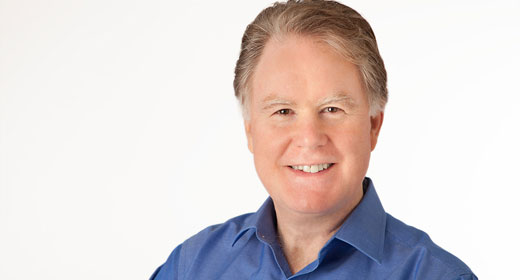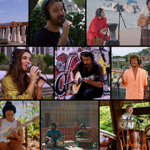by don Miguel Ruiz and don Miguel Ruiz Jr: The Four Agreements are followed by a Fifth Agreement…

which don Miguel Ruiz Sr. and don Miguel Ruiz Jr. explain is about moving from being a victim to being a master of truth.
Omega: What is the Fifth Agreement, and how does it work with the previous Four Agreements?
don Miguel Sr.: The Four Agreements are a way of life. In the Four Agreements, we see the problem and help create the solution. The problem is domestication and the solution is the Four Agreements. They are Toltec tools that anyone can use to break that domestication.
After practicing the Four Agreements for a certain time, when you are ready, the Fifth Agreement arrives: Be skeptical—but learn to listen. It says to stop believing and be skeptical. It doesn’t mean, “I don’t believe just because.” It’s not a superstition. You don’t believe because you know it’s not true.
Everyone is living in their own reality in their own world, and what they believe is only true for them and not for everyone else. We have seven billion people living on this beautiful planet Earth, and everyone lives in their own reality. Everyone thinks they are right and everyone else is wrong. By being skeptical, you can listen to those stories because masters, teachers, gurus, artists, or whoever explain what they believe.
Through this process, you learn something extremely important. You learn to respect everything and everybody, and respect that what they believe is true for them, even if it’s not necessarily true for you. You listen to what they say to get the best of them and then you can apply it to your own story to make your life much better. It begins with you.
It also applies to you. Don’t believe yourself. Don’t believe your own lies or your own superstitions. When you finally practice this Fifth Agreement, it leads you to your story and you realize that the victim no longer exists. You are no longer a warrior; you are now a master.
don Miguel Jr.: Some people take issue with the word skepticism because we have a total misunderstanding of the word. We think skepticism looks like covering our ears and not being able to hear others. But skepticism looks different. My free will is the ability to say “yes” or “no.” From this point of view, I say “yes” to the things I want to say yes to and say “no” to the things I want to say no to. My no is just as powerful as my yes. To be skeptical is to hold back my yes and my no and listen. I break the cycle of the automatic yes or the automatic no, something that happens as a result of our domestication or habitual thoughts.
We reintroduce something we don’t use too often—reason, that part of our mind that allows us to give scrutiny to what we perceive. We reintroduce scrutiny to what we hear. I introduce the ability to listen. If it survives my scrutiny, then I will say “yes.” If it doesn’t survive my scrutiny, then I will say “no.” But the key is the ability to listen.
For example, on Facebook we now have a lot of what’s called fake news stories. In the beginning, we believed all the news we saw. We believed if it was on the internet and it was shared, it must be true. But now we’ve learned it’s not always true. Something we’ve been practicing for a long time with newspapers and other media is this idea of scrutiny. We ask if there are other news sources reporting this story. We do our own research. But if you are already preconditioned to believe something, then you are going to grab that link, hit like, and share it. It supports your belief or your cause, and you share it whether you know it’s true or not.
Here’s the thing. When we believe something, we take action. If we are prone to only believe what we want to believe, then we are already believing lies. A rule my dad gave all of his apprentices was: Don’t believe me but learn to listen. Somewhere in what I say lies the truth.
We don’t know if the person who teaches us something learned it from those fake news stories but they think it’s truth. They bring it to us, and since we love and respect them, we believe them. From that point of view, giving scrutiny is giving the chance to see what’s the truth. It’s the key that allows us to tell the difference between our illusion and accept the truth. Skepticism from that point of view is an instrument of awareness.









































